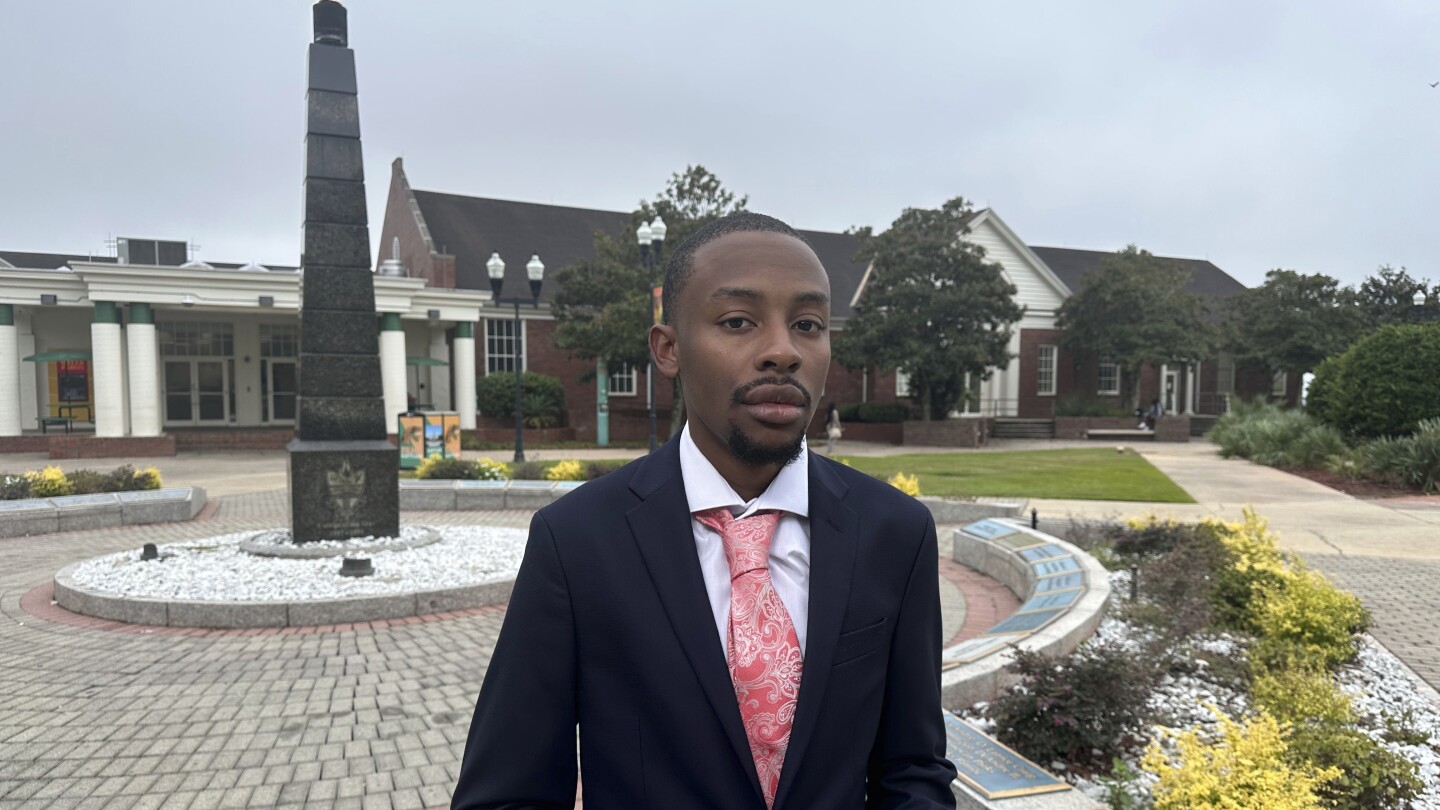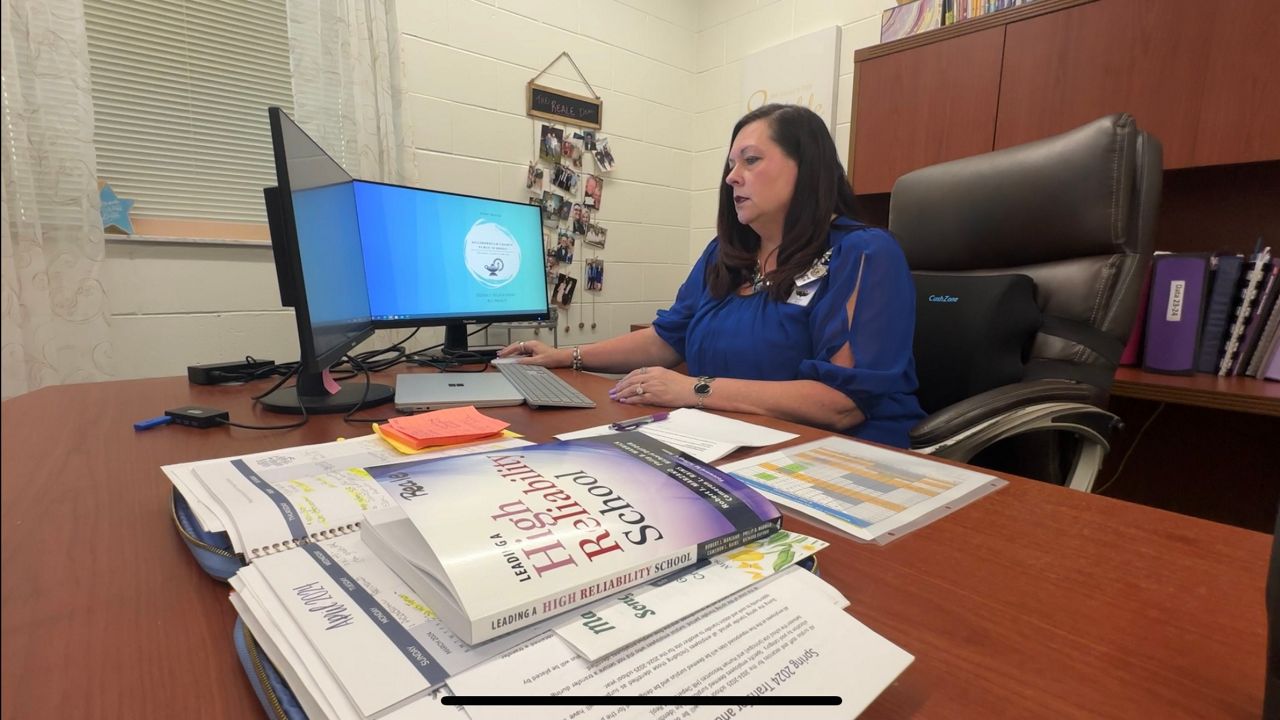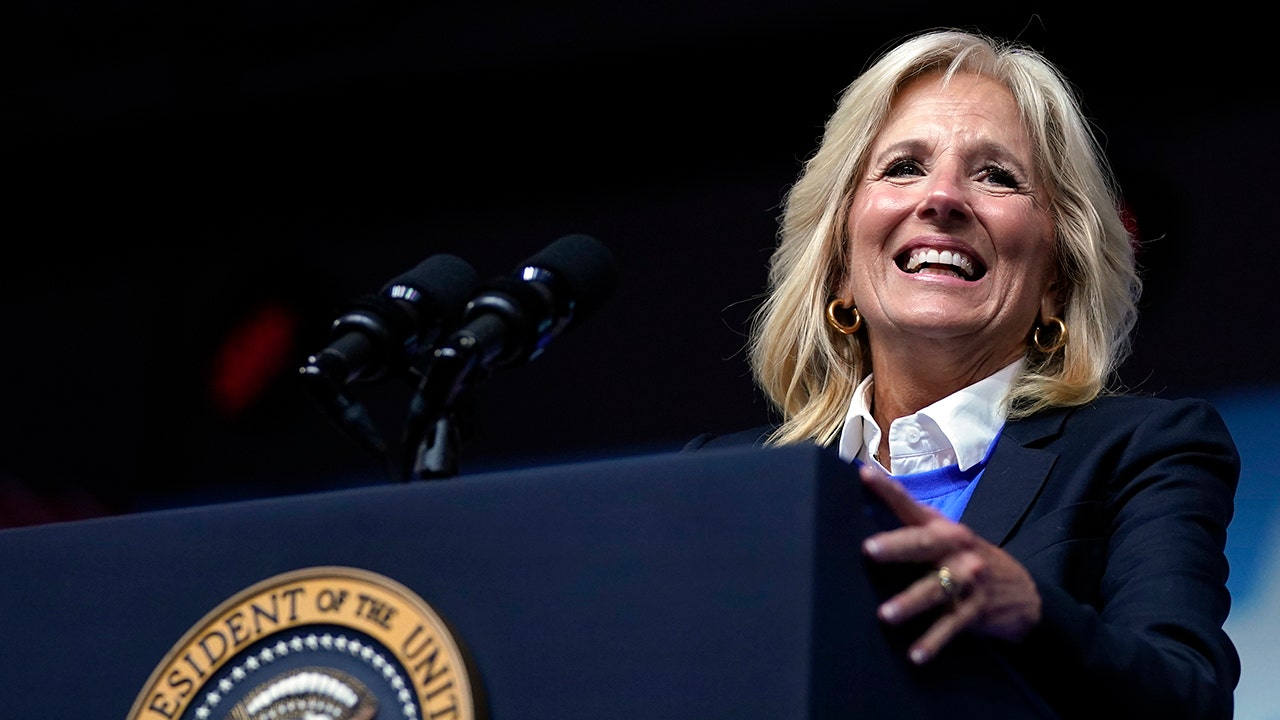Florida
At Florida's only public HBCU, students are wary of political influence on race education

TALLAHASSEE, Fla. (AP) — A core mission of Florida A&M University from its founding over a century ago has been to educate African Americans. It was written into the law that established the school along with another college, in Gainesville, reserved for white students.
At Florida’s only public historically Black university, some students now fear political constraints might get in the way of teaching parts of their history.
A law signed last spring by Gov. Ron DeSantis, a candidate for the Republican presidential nomination, blocks public colleges from using taxpayer money on diversity programs. It also forbids instruction of theories that “systemic racism, sexism, oppression, and privilege are inherent in the institutions of the United States and were created to maintain social, political, and economic inequities.”
The new law, part of broader GOP efforts to rein in campus efforts on equity and inclusion, has spurred protests on campus. Some students say they are watching for signs the new guidance will affect teaching of topics related to race and American history.
Chad Preston, a senior political science major, said he worries some viewpoints will be silenced.
“We deserve the same level of education that all these other states are getting. We deserve the same information,” he said.
DeSantis describes the law as an effort to rid university classrooms of what he calls left-leaning “woke” indoctrination. His education policies — including limits on what schools can teach about racism and which bathrooms students use — have faced criticism from civil rights leaders but fueled his political rise by harnessing culture war passions.
“In reality, what this concept of DEI has been is to attempt to impose orthodoxy on the university,” DeSantis said at a ceremony in May when he signed the bill into law. “This has basically been used as a veneer to impose an ideological agenda, and that is wrong.”
The university, founded in 1887, hosts about 10,000 students at its campus a few blocks from the state capitol.
The new law has made Florida a difficult learning environment for students and faculty of color, said Marybeth Gasman, a Rutgers University historian whose research focuses on historically Black colleges and universities and systemic racism in higher education.
“I’ve talked to some FAMU faculty who have basically told me that they’re keeping their head down because they’re afraid they’re going to lose their jobs,” Gasman said. “If I were in Florida, I would probably be concerned as well.”
FAMU has not seen upheaval anywhere near the scale of New College of Florida, a progressive campus where DeSantis and his allies overhauled the Board of Trustees and installed a majority of conservative figures. But many on the FAMU campus are wary.
Asked about the impact of the new law, a university spokesperson referred to a comment Florida A&M President Larry Robinson made in June.
“There are more than 30 pieces of legislation passed this legislative session that have some impact on educational institutions in Florida, including FAMU, and we take them all seriously,” Robinson said. “But our commitment to ‘Excellence With Caring’ remains strong, and remains unchanged.”
In early December, the board overseeing Florida’s state university system released proposed regulations outlining programs that would be prohibited from receiving state or federal money under the new law. Programs on the outs would include any that promote “differential or preferential treatment of individuals, or classifies such individuals on the basis of race, color, sex, national origin, gender identity, or sexual orientation.”
The FAMU Democrats have been taking steps to ensure the messages of speakers they invite to campus are moderate, said Jovan Mickens, a senior and president of the student political group.
“With my organization, there are certain things I can’t do like bring certain people on campus for a panel discussion. We’re tip-toeing around this university,” he said.
Historically Black colleges and universities often receive less funding than predominantly white public colleges. A group of students at FAMU have filed a lawsuit against the state, saying it has underfunded their school by nearly $1.3 billion.
But for leaders of public colleges, pushing back on policies they disagree with could put them at odds with the same officials deciding on their budgets, said Abul Pitre, chair of the Department of Africana Studies at San Francisco State University.
“It requires a certain kind of balance that does not allow them to have too much of an Afrocentric social justice perspective, because they have to go to the same politicians for money who are advocating to eliminate it,” he said.
Raghan Pickett, a senior at FAMU, traces her lineage back to Rosewood, Florida, where hundreds of Black people were killed or driven out in 1923 by a mob of white men who then destroyed their neighborhoods. She fears the new law could stop instructors from teaching about such atrocities.
“Back then, it was afraid of being lynched,” Pickett said. “Today, Black people are still struggling. We’re still fighting to learn basic history.”
___
The Associated Press education team receives support from the Carnegie Corporation of New York. The AP is solely responsible for all content.

Florida
Gov. DeSantis signs bill raising age to strip in Florida, combats human trafficking

DeSantis viewed more favorably than Trump: Inside Florida Politic
A new poll shows Gov. Ron DeSantis has a higher favorability rating than Donald Trump in Florida after a contentious presidential primary contest.
You won’t see an 18-year-old stripper in Florida after July 1.
Gov. Ron DeSantis signed a bill Monday afternoon that bans anyone younger than the drinking age from working at an “adult entertainment establishment,” affecting not only strip clubs but places like adult movie theaters and libraries, too.
That restriction is expected to receive First Amendment challenges in court. It’s part of broader legislation (HB 7063) aimed at combating human trafficking, including by extending the lifetime of the Statewide Council on Human Trafficking.
“We’re going to stand strong for those who may not be in a position to defend themselves,” DeSantis said at a press conference in Coral Gables. “Our state is a great state … We are a united front here saying that we’re not going to just stand idly by.”
DeSantis also announced he would be approving $4.9 million in the state budget to expand access to emergency beds and increase staff to provide trafficking survivors a safe place to begin their recovery. He added that the state has a $900,000 grant opportunity to enhance staffing and training for law enforcement targeting trafficking.
Bill supporters have alleged businesses like strip clubs are dens for trafficking, especially of young women.
But when the bill was making its way through the Legislature, some Democrats wondered if the age restriction had more to do with ideological disagreement with the exotic dancing profession. And they warned those who lose their jobs could go into more dangerous work.
“If there’s not controlled environments, young girls will get pulled into private parties,” said Rep. Michele Rayner, D-St. Petersburg, on the House floor this past session. “Once again, this House, this body, is trying to legislate what women can and cannot do with their bodies. And it’s overwhelmingly a lot of men who are trying to do that.”
Rep. Carolina Amesty, a Windermere Republican and a bill sponsor, said during press conferences that adult entertainment establishments are no place for those younger than 21 years old.
“My vision for the young women of Florida is to not work in the adult entertainment (industry) but rather get a job, an education and career and have a good quality of life,” she said.
The bill ultimately passed the Legislature with bipartisan approval, including from Rayner, with only three Democratic “no” votes in the House and Senate.
Under the law, employers who “knowingly” hire workers younger than 21 years old at adult entertainment establishments would face criminal penalties. Those criminal penalties would go as high as a second degree felony, punishable by up to 15 years behind bars, if that worker performs nude.
And the language emphasizes that “a person’s ignorance of another person’s age or a person’s misrepresentation of his or her age may not be raised as a defense in a prosecution.”
Expect a legal challenge
The measure comes as the 11th U.S. Circuit Court of Appeals is expected to rule soon on a Jacksonville dancer age restriction ordinance, a decision that could set a First Amendment precedent on age-based regulation of expression – and a decision that could potentially knock down such restrictions.
During the Jacksonville litigation, it came out that “no arrest for human trafficking has ever been made in an exotic dance establishment” in that city, according to court records. But a federal judge upheld the ordinance, and it remains in effect awaiting the decision.
“It just seems rushed and unwise to to pass a law like this now, while litigation is ongoing,” said Gary Edinger, a Gainesville-based First Amendment attorney who is representing Jacksonville clubs that filed suit against the ordinance. “You’d think (lawmakers would) just wait until the next legislative session, so they know whether the law is constitutional or not.”
Regardless, Edinger says he’s in talks with other attorneys and he has “no doubt” a lawsuit will be filed against the state law.
“There are lots of things to be concerned or note about this statute,” he said. “Adult entertainment (establishments) are not a hotbed of sex trafficking … When we’re dealing with the First Amendment, the state can’t just say something and have the courts accept it. There’s no deference to the Legislature. They’re going to have to prove those allegations.”
Lawmakers pass the age restriction: On International Women’s Day, Florida lawmakers pass bill to raise age to be a stripper
Age restriction was once thought dead: Florida Senate passes bill to raise state’s exotic dancing age to 21
This reporting content is supported by a partnership with Freedom Forum and Journalism Funding Partners. USA TODAY Network-Florida First Amendment reporter Douglas Soule can be reached at DSoule@gannett.com.
Florida
New ACLU Florida leader Bacardi Jackson points to 'Urgency of Now'

TALLAHASSEE — Saying the country is at a “deeply, deeply disturbing” juncture, Bacardi Jackson — a veteran litigator whose civil-rights advocacy is literally in her genes — is taking the mantle as executive director of the American Civil Liberties Union of Florida.
American Civil Liberties Union of Florida
/
News Service of Florida
Jackson started the job Monday amid a growing number of challenges to laws passed by the Republican-controlled Florida Legislature and signed by Gov. Ron DeSantis.
During a wide-ranging interview with The News Service of Florida, Jackson said she views her new position as an opening to spur action at a critical juncture in the history of the state and the nation.
“In my lifetime, I have never seen the barrage of repressive legislation and laws that have passed across our nation, and sadly many of those have been spawned right here in our state. So it is an opportunity to really focus and do something about securing freedom for our state and for my children and everyone’s children,” Jackson said.
Jackson’s activism is rooted in the Deep South, where her parents were civil-rights leaders, according to a cover letter submitted to the ACLU’s hiring team in January when Jackson was applying for the job.
Jackson’s paternal grandfather, a sharecropper, built one of Mississippi’s first “substantive” schools for Black children, according to the cover letter.
Her father was a strategist behind the voting-rights march from Selma, Ala., to Montgomery, Ala., which led to passage of the Voting Rights Act of 1965.
Her mother, the granddaughter of Jewish immigrants who escaped persecution in Russia, was a young anti-apartheid activist who, among other things, fought for hot lunches for school children in Memphis.
And Jackson’s stepfather was a member of the “Memphis Mobilizers,” a group that helped lead efforts to integrate public schools in the city.
Jackson pointed to her family’s history to illustrate what she characterized as disturbing developments in Florida, such as a 2022 law restricting the way race can be taught in schools.
“There was a point in our history where teaching Black children to read was punishable by death. And if we don’t understand that history, we don’t know how valuable that right is and how urgent it is to protect it when we see our public schools being defunded and decimated and destabilized intentionally.”
Bacardi Jackson
“There was a point in our history where teaching Black children to read was punishable by death. And if we don’t understand that history, we don’t know how valuable that right is and how urgent it is to protect it when we see our public schools being defunded and decimated and destabilized intentionally,” she said. “I am literally three generations from slavery and you already want to erase that history. That’s problematic.”
Jackson earned a bachelor’s degree in political science from Stanford University and graduated from Yale Law School. She began her legal career in private practice and spent the past four years at the Southern Poverty Legal Center in Florida, where she was deputy legal director for the Democracy: Education & Youth litigation team.
Jackson succeeds Howard Simon, who served as the ACLU of Florida’s executive director for more than two decades before retiring in 2018 and returning as interim director in August 2023.
Simon called Jackson an “exceptionally well-qualified” hire who comes on board at “an especially dangerous time for civil rights and civil liberties” in the state.
“Never in the decades that I have lived in the Sunshine State has there been a governor and legislature so intent on rolling back every element of progress that has been made for women’s rights, First Amendment rights, voting rights, racial equality, LGBTQ+ rights, freedom from government-sponsored religion, and so many other constitutional principles,” Simon said. “That is why I, and the members of our staff, are so thrilled that Bacardi Jackson has been appointed as our new executive director. She is exceptionally well-qualified to lead our talented staff during this critical time in the hard work they have been doing to protect the rights of the people of Florida from assault by their own government.”
Jackson’s personal history — she said she grew up in “abject poverty” and experienced hunger and homelessness — as well as her legal career will inform her approach to the leadership role, she said.
“I’m deeply curious and interested in how laws impact different people. And you know, one of the debates and discussions that I think is kind of in the ether these days is, what is the mission and what does it mean to have civil rights and civil liberties, and whose civil rights and civil liberties, and what happens when they conflict with each other, because everybody believes that they are fighting for their freedoms and rights, right?” Jackson told the News Service.
The ACLU has notched a number of legal victories in challenges to laws passed since DeSantis was first elected governor in 2018. As examples, judges have blocked laws aimed at restricting public protests, limiting how race-related concepts can be taught in colleges and universities and barring non-citizens from participating in voter-registration efforts. The DeSantis administration has appealed those decisions, and the ACLU also is involved in challenges to other state laws.
“The story of racial justice in this country is a powerful story of reckoning with ourselves. And here in 2024, I should not be fighting my parents’ battles, but I am. And at the core of those battles is an insidious continuation of racist propaganda that is the undercurrent of what we are hearing,” Jackson said.
Jackson said she plans to kick-start her new job by exploring areas “where no one is protecting our freedoms.”
“It is really important to have conversations across our state to understand where people are suffering, where our laws are causing them to suffer and figure out what we might be able to do about it,” said Jackson, who has lived in Florida for 18 years. “It can’t just be winning litigation. That would be nice. But with the next election, that can be reversed.”
Jackson also said she wants to launch a “broader campaign” that includes community engagement and activism.
For now, the mother of three teenagers is concerned about what she said is a sense of complacency. When asked, Jackson said she is most fearful of “the decimation of democracy,” which she called “deeply, deeply disturbing.”
“For me, this moment in history is a moment that demands a very loud, active, verbal response. It is a moment where we have got to figure out how to figure out how to translate, for everyone — and particularly for the young people who are inheriting the mess we’re making — the urgency of now,” she said.
Jackson said she wants to appeal to young people to get involved with the ACLU.
“We are excited about all the ways that I believe we can expand our impact. I want to just offer that invitation, particularly to young people who are inheriting all of these decisions and the consequences of them,” she said.
Florida
Maniscalco K-8 makes Florida's Schools of Excellence list

LUTZ, Fla. — One Principal in Hillsborough County is celebrating her staff on making this year’s Schools of Excellence list.
The list was started by the State of Florida in 2017 and honors the highest performing schools statewide.
Maniscalco K-8 in Lutz made the list this year after it’s Principal, Tammy Reale, says it started focusing on data driven academic monitoring.
“The last year that we were a B was in 2021, and that kind of hit our teachers hard, like what are we doing wrong?” Reale said. “They weren’t doing anything wrong. We just needed to look at the data a little bit differently.”
It is hard to escape that data driven approach at Maniscalco.
Teachers have data points posted all over their classrooms, and the halls of the school are lined with student goals and achievements.
Principal Reale says as teachers monitor new forms of data, they have the ability to more quickly identify students that need a push, and others that are falling behind.
“It gives the teachers an opportunity to intervene earlier as they are tracking data,” Reale said.
Hillsborough County is celebrating 31 schools that made the Schools of Excellence list this year.
Currently, just over 10% of all Hillsborough County schools are recognized as Schools of Excellence.
-

 Politics1 week ago
Politics1 week agoAustralian lawmakers send letter urging Biden to drop case against Julian Assange on World Press Freedom Day
-

 World1 week ago
World1 week agoBrussels, my love? Champage cracked open to celebrate the Big Bang
-
News1 week ago
A group of Republicans has united to defend the legitimacy of US elections and those who run them
-

 Politics1 week ago
Politics1 week agoHouse Dems seeking re-election seemingly reverse course, call on Biden to 'bring order to the southern border'
-

 World1 week ago
World1 week ago‘It’s going to be worse’: Brazil braces for more pain amid record flooding
-

 Politics1 week ago
Politics1 week ago'Stop the invasion': Migrant flights in battleground state ignite bipartisan backlash from lawmakers
-

 World1 week ago
World1 week agoGerman socialist candidate attacked before EU elections
-

 World1 week ago
World1 week agoSpain and Argentina trade jibes in row before visit by President Milei









/cdn.vox-cdn.com/uploads/chorus_asset/file/23986615/acastro_STK097_01.jpg)








